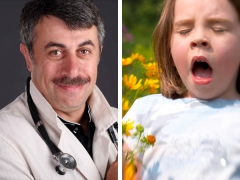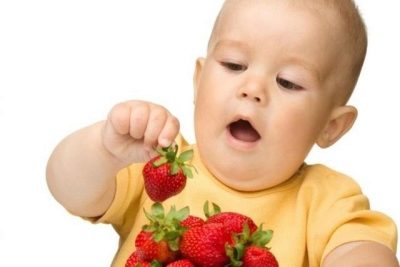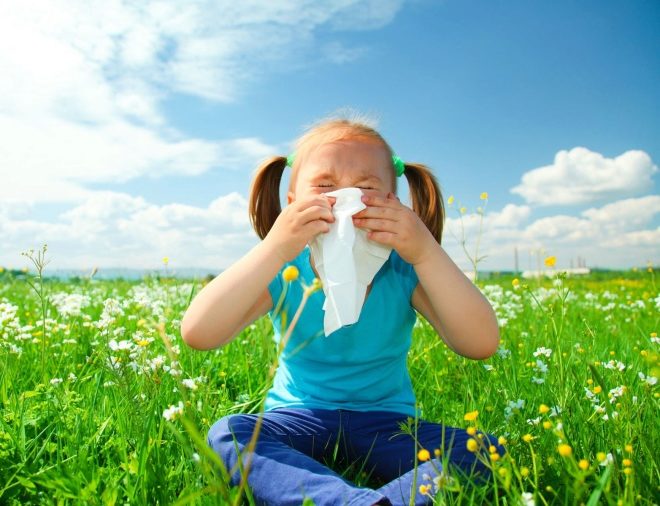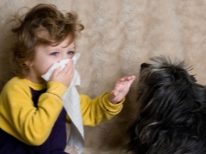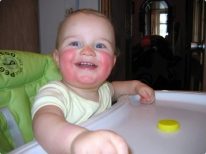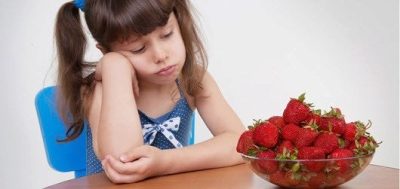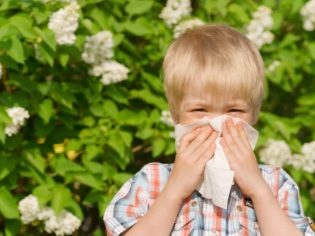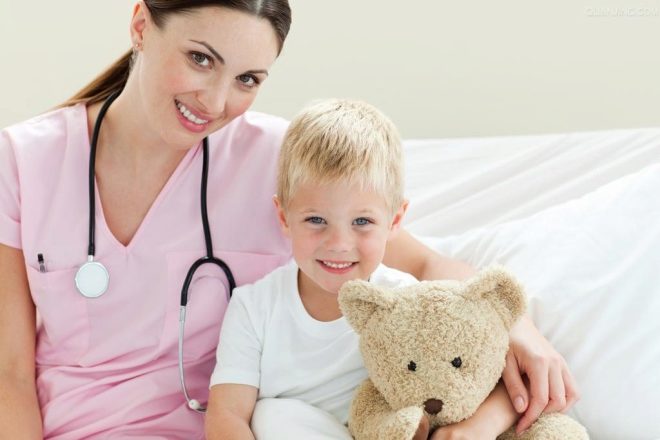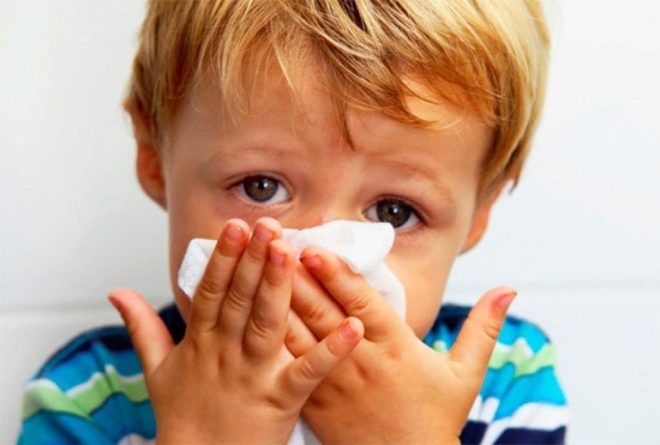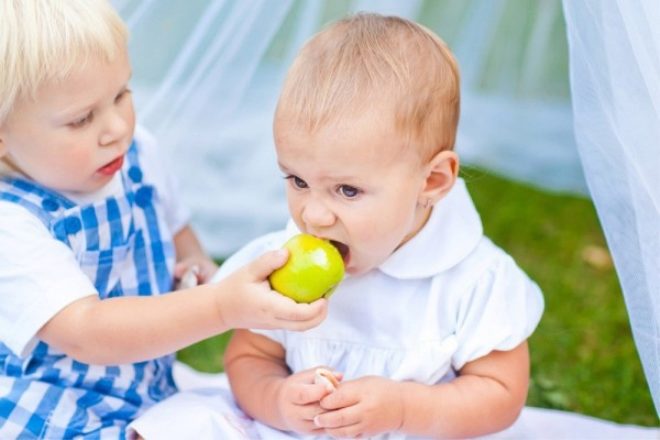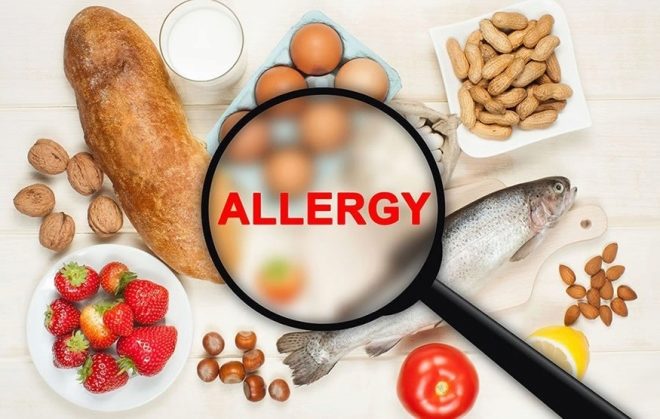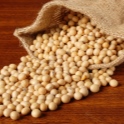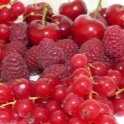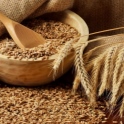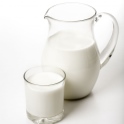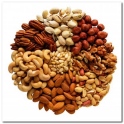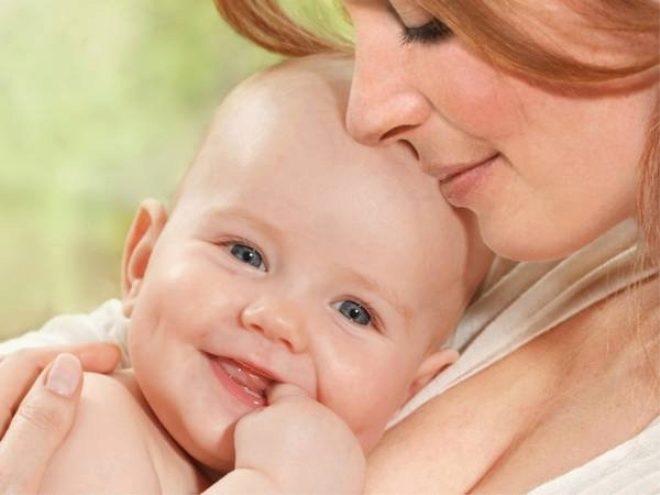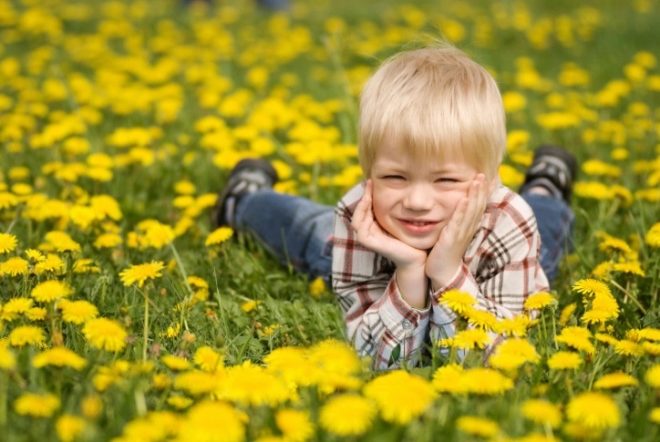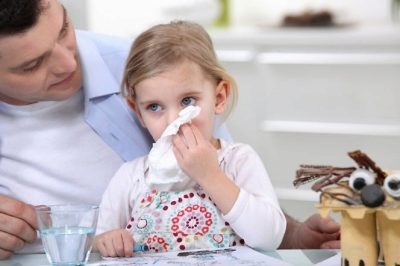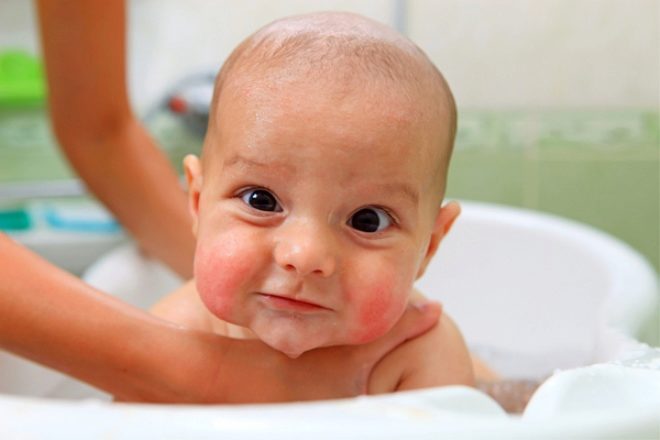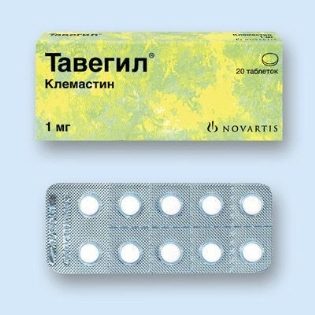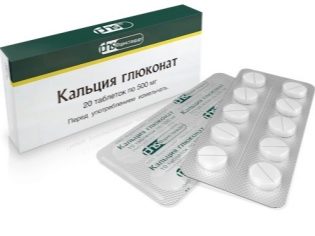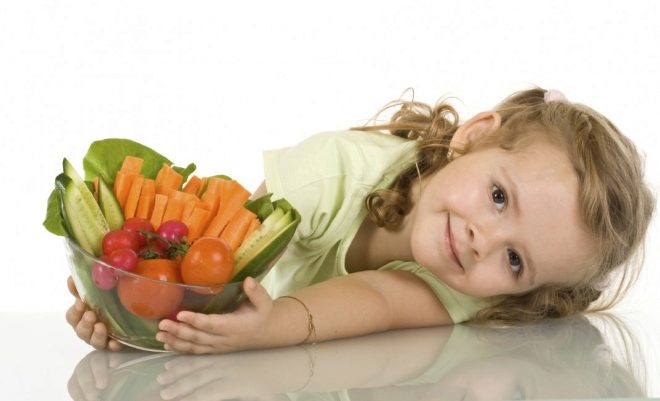Dr. Komarovsky about allergies in children
Eight out of ten modern children suffer from allergies to one or another pathogen. Moms diligently follow the recommendations of the doctors, according to the schedule they give children antihistamines, change their diet, evict a cat and a dog from an apartment without the right to correspond, but for some reason allergic reactions persist in a child. More precisely, they go into a dormant state, and at every opportunity, an allergy flares up with a new force.
Perhaps, moms and dads, and at the same time the lion’s share of district pediatricians do not have the right approach to the treatment of childhood allergies, says Dr. Evgeny Komarovsky, a well-known in Russia and the CIS countries.
What it is?
An allergy is an inadequate response of an organism to a particular antigen. Sensing a threat, the child’s body forms an army of defense — antibodies that, when they come into opposition with protein antigens, cause the same symptoms that every mother knows perfectly well — the child’s eyes are watering, a rash appears on the cheeks, on the legs, and on the hands of the crumbs, nasal congestion with no cold, dry and exhausting cough.
Allergies in children are of several types.
Food
It occurs when eating certain foods that are rich in antigens. Most often, the baby has a reaction to cow's protein, to one or another adapted milk formula, very rarely even to mother's milk. Older children often have allergies to eggs, sugar, citrus fruits, and even buckwheat and tea with lemon.
Medicinal
This type of allergy occurs on certain medications, and can also develop with long-term treatment with the same drug. Allergy is often manifested after a course of treatment with antibiotics, it develops on the background of dysbacteriosis.
Skin contact
Atopic dermatitis usually appears in response to some chemical components, which are included in the compositions of cosmetics, soaps, shampoos, creams, dyes, which are used by manufacturers of children's clothing, household chemicals, which are used by a mother at home or a cleaner in kindergarten or school.
Allergies to animals and plants
These are the least studied and at the same time the most common types. Most often, children have an unhealthy reaction to cats and dogs, at least to rodents (hamsters and guinea pigs) and birds. Such an allergy is rich in fiction, its symptoms are diverse - from allergic rhinitis to tearing and coughing. Pollinosis (an allergy to pollen, to blooming) also happens quite often, but its manifestations are usually more constant - these are respiratory problems.
Cross-allergy
Ailment caused by several antigens. This usually happens when the flowering season of one plant (for example, alder) ends and the season immediately begins for another plant harmful to the child’s body (birch or poplar). In addition, some plants create a very harmful duet with certain foods. You can learn about the most “dangerous” months when the risk of developing cross-allergy is highest is available from a special table that every doctor has on the table or on any website on the Internet devoted to allergy problems.
A universal antigen, equally dangerous to all children, does not exist. After all, in one child a cat in the house causes a rash and a runny nose, while another does not. The point is not at all in the cat, but in the fact that children have an equally immature immune system and different “critical marks” of the level of antigen. The tendency to allergies is sometimes inherited, and most often it is a congenital feature of a particular baby.
Treatment
Doctors have standard treatment regimens for a particular allergy in children. Usually, after the examination, which ideally includes an allergy test (determining the specific substance causing the reaction), antihistamines, a strict diet, and constant medical supervision are prescribed. Often the doctor is limited to a visual inspection and immediately advises Suprastin.
At the same time, official medicine believes that it is impossible to cure allergies until the end. In reality, only occasionally to fight its manifestations with the help of the right medications. Yevgeny Komarovsky opinion is somewhat different.
And here's the actual release of the transfer of Dr. Komarovsky dedicated to children's allergies
Komarovsky about allergies
Yevgeny O. emphasizes that the number of children with allergies in the world is growing rapidly. In this, of course, there is a “merit” of the deteriorating environmental situation, GMO, but the main reason, according to the doctor, is the parents themselves. A child with a healthy immunity does not respond to ingestion of antigens in the body, says Komarovsky. And the caring mothers and fathers themselves spoil the immunity of the babies.
The newborn's immune protection is still being formed, and adults are interfering with it, feeding the child for any reason a variety of medications. Even where the baby is able to cope with the illness on its own (with flu and ARVI, with teething, with a mild rhinitis), worried mothers rush to drip into your nose, give a pill or syrup, and some still strive to make an injection, because only The method of treatment is considered truly effective.
Parents muffle children warmer, hide from frost and heat, forcibly stuff semolina or omelette, believing that they are doing the best. In fact, according to Evgeny Komarovsky, all these actions irreversibly cripple the baby’s immunity. And no wonder that wool, pollen or other antigens, which are around the child a lot, sooner or later begin to "shoot" negative reactions.
Treatment according to the Komarovsky method
Food allergies, said Komarovsky, treat by and large do not need. It is enough to exclude the product to which the reaction appeared. For example, cow protein allergy, which develops most often in children who are too early in the diet cow's milk, retreat immediately after the mother stops giving her baby and dairy-based products. It is possible to compensate the necessary proteins for such children at the expense of meat, liver. A lack of calcium in the growing body can be compensated by giving the child calcium gluconate.
For many years of personal medical practice, Evgeny Komarovsky brought out his personal list of the most allergenic products. Here he is:
- Milk
- Chicken and Quail Eggs
- Soy and products containing it.
- Various the nuts (especially peanuts, brazil nuts and cashews).
- Wheat.
- Red berries (raspberry, strawberry).
Komarovsky emphasizes that with the manifestations of food allergies do not give the child any antihistamines and undergo long courses of treatment. It is enough not to overfeed the child, not to force him to eat, to give food only at the personal request of the baby, to try to avoid products that cause a negative reaction. Over time, the immunity will get stronger, and the antigens will not be terrible, the child, as they say, will “outgrow” his illness and will be able to eat anything without fear of becoming covered with a rash from head to toe.
Allergy to flowering and pollen Komarovsky does not consider it a reason to close the child at home for the entire spring and half of the summer period. The doctor claims that the parents of a child prone to seasonal allergies should simply prepare more carefully for the onset of the problematic time of the year. The child should continue to live a normal life, go for a walk, attend school or kindergarten, mom and dad can resort to antihistamine preparations when the manifestations of allergy are quite strong.
The doctor recommends that the parents of such a baby during the flowering period exclude trips to the countryside outside the city, morning walks, when the concentration of pollen in the air is very high, Twice a day, send the child to the shower and rinse the hair, buy a humidifier home and more often do wet cleaning without chlorine-containing products.
If a child has a reaction to household allergens (to detergents, cosmetics, to animals), Komarovsky recommends that you remove the source of antigens from the child’s environment as soon as possible and thoroughly vacuum and clean the apartment, especially carpets, chairs, soft toys, because they accumulate allergens more active than other interior items.
When allergic rash occurs, Yevgeny O. advises that a skin test is mandatory, because children may have a thousand causes that cause such a reaction. As soon as the allergen is established, the child will need topical medications - ointments, gels, creams with antihistamines and antipruritic action.
If the rash is pronounced and localized in the neck and face, combined with puffiness, this may indicate a beginning angioedema. With him, no advice is relevant except to call an ambulance. Delay can cause the child to suffocate.
If you are allergic to medications, you should immediately stop taking the drugs that caused the trouble and inform your doctor as soon as possible. He will select another remedy for the treatment of the underlying disease, and the symptoms of drug allergy will recede.
About medications
The magic allergy pill does not exist, says Komarovsky. And every time he talks about this problem, he emphasizes that antihistamines widely advertised and so beloved by doctors and parents (“Tavegil"," Suprastin ", etc.) cause dry mucous membranes. Calcium deficiency increases the manifestations of allergy, which is why allergy sufferers most often exacerbate the disease during teething, active bone growth, when the body consumes more calcium.
Therefore, the doctor strongly recommends that calcium gluconate or crushed eggshell be introduced into the diet of such babies.
Topical treatment with ointments and gels is quite effective and does not harm the child. However, according to Evgeny Olegovich, they only eliminate external symptoms, without affecting the cause of the problem.
Komarovsky considers corticosteroid hormones to be the best treatment option for skin manifestations of allergy.
Tips of Dr. Komarovsky
- Do not try to determine the cause of allergy in your baby. It is better if specialists do this on the basis of laboratory tests and skin tests.
- On the way to the hospital or clinic as much as possible remember that the child had eaten in the last 24 hours, where he had been, with what he had contact. This will help the doctor to make the correct diagnosis.
- In the treatment prescribed by the doctor for the child must act hypoallergenic diet. Komarovsky recommends eliminating all factory-made sweets, pastries made with gluten-rich wheat flour, nuts, citrus fruits, eggs, red berries, all smoked and salted, pickles, sauces from the baby’s diet. If you completely refuse from sweet, Komarovsky advises to replace it with fructose.
- During the treatment of allergies need to pay attention to emptying the intestines.A significant part of the antigens (foreign proteins) is excreted with feces, and therefore it is important for a child, especially with atopic dermatitis, to regularly go to the toilet “in a big way”. If necessary, Evgeny Olegovich advises giving him a mild laxative.
- The most important threat to a child prone to allergies Komarovsky believes chlorine, which is contained in ordinary water from the tap. He advises to filter the water, even to pay for the baby after taking a bath.
- The doctor advises you to wash the laundry for the child only with special baby powders, and only hypoallergenic children's skins and shampoos should be used as body care products.
- In no case should you force an allergic child (and a healthy child too) to eat through force. “For mom, for dad” is not the best way to raise a healthy person.
- The best way to beat allergies is to begin to strengthen the child’s immunity. Not drugs from the pharmacy, but exercise, hardening, walks, sports, vitamins.
- It is not necessary to record a child in chronic allergies, if he has been allergic to chocolate or some plant one or two or three times. In 99% of cases of childhood allergies, the head doctor is time. Over time, 99% of children who suffered from this or that type of allergy in childhood disappear completely. And only 1% is saved.
